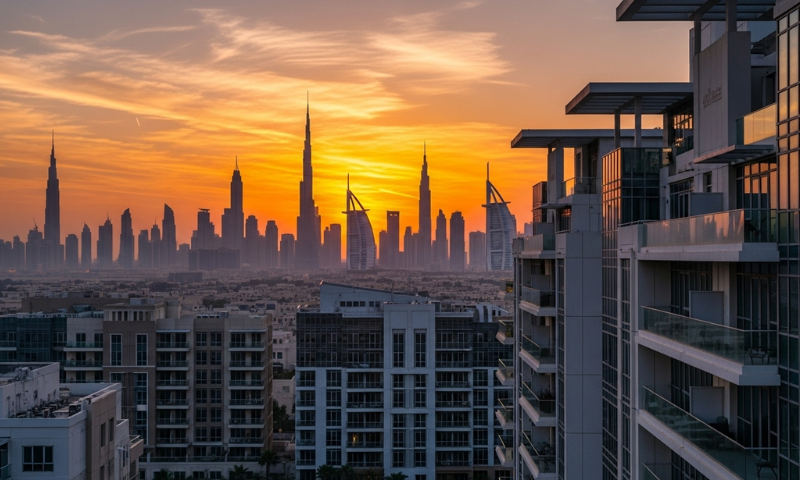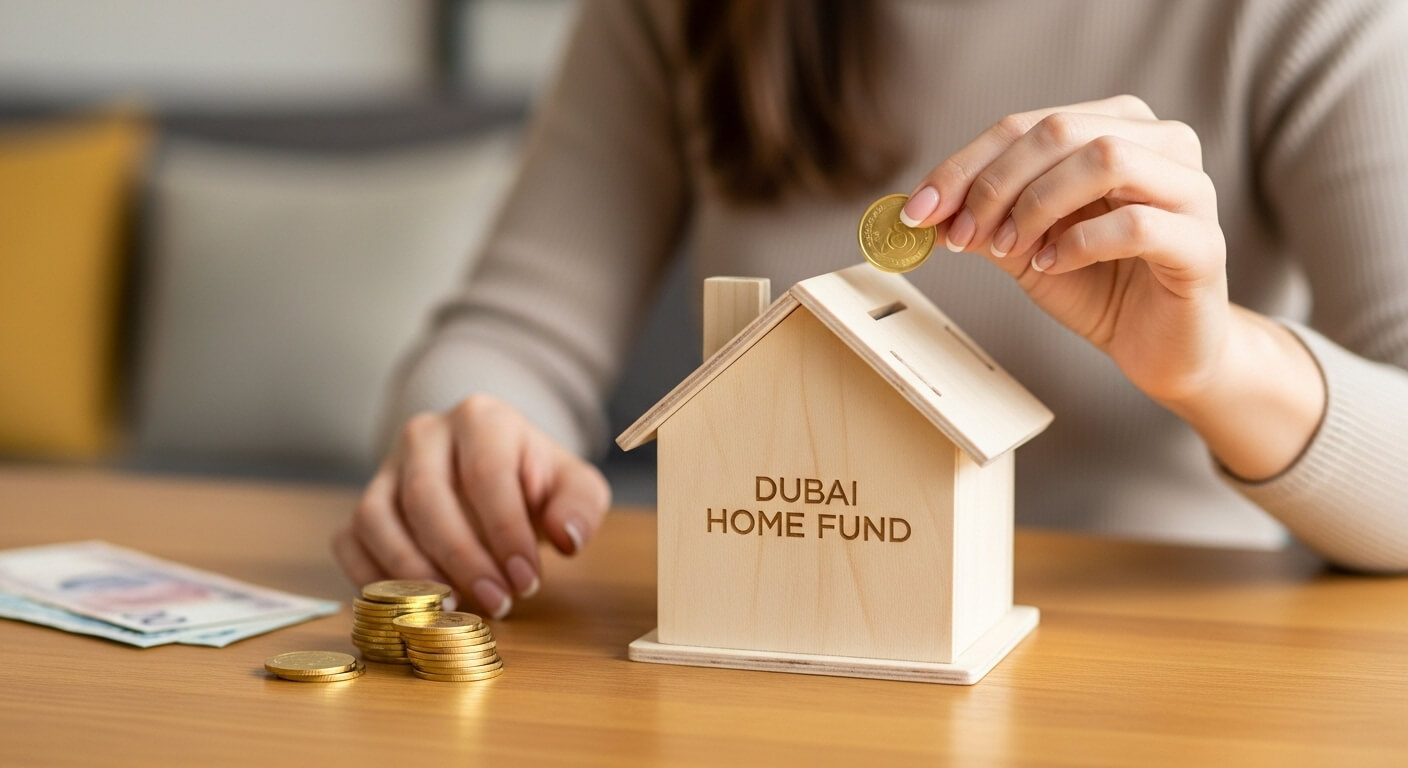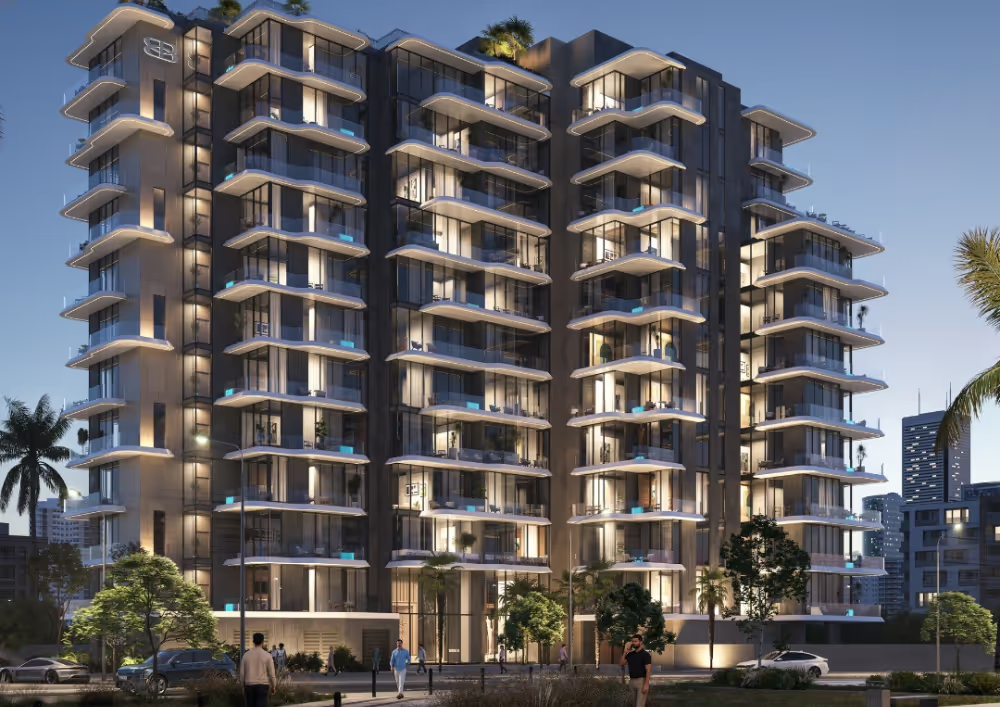From Rent to Own: How Dubai Residents Can Save for Their First Apartment

Saving for your first apartment in Dubai is achievable with smart budgeting, consistent savings, and the right developer payment plan. Start by setting a target down payment (20–25%), reducing rent expenses, investing savings wisely, and exploring off-plan projects that offer extended post-handover plans — such as Bond Enclave in Arjan.
Turning Rent Into Real Estate
For thousands of residents in Dubai, paying rent every month feels like watching money disappear into thin air. But what if that same amount could start building equity in your own home?
With Dubai's booming real estate market and flexible developer payment plans, transitioning from renter to homeowner is no longer a distant dream. Whether you're an expat looking to settle long-term or an investor seeking stability, owning property in Dubai offers both financial security and lifestyle freedom.
In this guide, we’ll break down how to save efficiently, plan strategically, and leverage off-plan opportunities — so your rent payments become the foundation of your first home.
How Much Do You Need to Save for a Down Payment in Dubai?

Before diving into strategies, you need a clear target number.
Typical Down Payment Requirements
For most Dubai properties, expect to pay:
- 20% of the property’s price upfront (for UAE residents).
- 25% for non-residents or foreign investors.
Example: If you’re purchasing an AED 800,000 apartment, you’ll need around AED 160,000–200,000 as your down payment.
Add to that:
- 4% Dubai Land Department (DLD) registration fee
- AED 5,000 Oqood registration (for off-plan projects)
- 2% agency or broker fee (if applicable)
So your total initial cost may be approximately AED 190,000–220,000 for an average one-bedroom apartment.
Step 1: Set a Realistic Savings Timeline
Start by asking: When do I want to buy?
- Short-term goal (1–2 years): Aggressive saving and reducing current rent.
- Mid-term goal (3–5 years): Mix of saving and investing in low-risk assets.
- Long-term goal (5+ years): Consider SIPs, mutual funds, or recurring deposits.
A good benchmark is to save 30–40% of your monthly income toward your property goal.
Step 2: Reduce Rent — Your Hidden Capital

Rent is your biggest expense, but also your biggest opportunity.
Smart Rent-Saving Strategies:
- Downsize temporarily: Move to a smaller or shared unit for 1–2 years.
- Negotiate your lease renewal: Many landlords accept reduced rents if you commit to a longer term.
- Pay rent annually instead of quarterly: Some landlords offer a 5–10% discount.
- Live closer to work: Save on transportation and hidden costs.
Even saving AED 2,000/month on rent = AED 24,000/year, which becomes part of your down payment fund.
Step 3: Automate Your Savings
Automation ensures consistency — the cornerstone of financial success.
- Open a separate “Dream Home Account.”
- Automatically transfer 15–25% of your salary there each month.
- Avoid mixing this with your spending account.
Pro Tip: Use Emirates NBD’s “Goal Savings Account” or Mashreq’s “Dream Saver” feature to earn interest while you save.
Step 4: Explore Off-Plan Projects with Flexible Payment Plans
Off-plan developments — like Pearlshire’s Bond Enclave in Arjan — make it possible to buy property with lower upfront payments and extended installment options.
Typical Off-Plan Structure:
- 10–15% booking amount
- 40–50% during construction
- 40–50% post-handover over 3–5 years
This means you can own an apartment while paying gradually, instead of saving the full amount first.
Pearlshire offers smart home apartments with luxury amenities, ideal for first-time buyers looking for affordable luxury with long-term appreciation potential.
Step 5: Use High-Yield Savings or Low-Risk Investments
Instead of leaving your money idle:
- Invest in high-interest savings accounts or fixed deposits (offered by UAE banks).
- Explore Shariah-compliant investment funds if preferred.
- Avoid risky crypto or volatile stocks unless you’re experienced.
Example: AED 5,000/month invested in a fund with 5% annual return = AED 318,000 in 5 years — enough for your down payment.
Step 6: Take Advantage of Developer Incentives
Many Dubai developers — including Pearlshire Development — offer exclusive incentives for early buyers, such as:
- Zero DLD fee
- Post-handover payment plans
- Service charge waivers
- Rental guarantees
Such promotions can save you AED 50,000+ — accelerating your ability to own faster.
Step 7: Calculate Your Monthly Ownership Cost
Buying isn’t just about affording the down payment. Consider:
- Mortgage repayment (typically 3.5–5% annual rate)
- Service charges
- Maintenance & utilities
- Insurance
Use the Dubai Land Department Mortgage Calculator to determine affordability before committing.
Step 8: Stay Consistent with a Monthly “Rent-to-Own” Mindset
Adopt this mental shift:
“Every rent dirham saved brings me closer to my own front door.”
Even small consistent savings — AED 1,000/month — add up over time. Pair this with off-plan payment flexibility, and you could own an apartment in Dubai within 3–4 years.
Best Areas in Dubai for First-Time Buyers
FAQ’s
1. How much should I save for a house down payment in Dubai?
In Dubai, most banks and developers require a 20–25% down payment for property purchases. For example, a AED 900,000 apartment would need approximately AED 180,000–225,000 upfront. You’ll also need to budget for Dubai Land Department (DLD) fees and Oqood registration. Some developers, like Pearlshire, offer flexible post-handover payment plans to ease your financial load.
2. How can I save money for my first apartment in Dubai on a low salary?
Start by tracking expenses and automating savings into a dedicated account. Reduce rent by choosing shared housing or areas like Arjan and JVC, where apartments are more affordable. Combine your savings with developer payment plans or rent-to-own schemes. These flexible options let you start owning even while you’re paying in installments.
3. What is the best way to save for a property down payment in Dubai?
Use a mix of automated savings, high-yield bank accounts, and short-term investment plans. If you’re consistent, saving 20–30% of your monthly income can help you reach your goal faster. Pair this with off-plan projects like Bond Enclave, where booking starts from just 10–15% upfront — making ownership achievable without years of saving.
4. Is it cheaper to buy or rent an apartment in Dubai?
In the long term, buying property in Dubai often costs less than renting. While rent prices increase annually, property ownership builds equity and stability. For example, areas like Arjan and Dubai South offer 6–8% average rental yields, meaning your apartment can generate income instead of being an expense.
5. Can foreigners buy property in Dubai easily?
Yes. Foreigners can buy freehold property in Dubai across designated zones such as Arjan, Jumeirah Village Circle (JVC), and Dubai Marina. Developers like Pearlshire Development provide off-plan apartments with flexible post-handover plans, which makes it easier for expats to own homes with minimal initial investment.
6. How can I buy a property in Dubai without paying the full amount upfront?
You can buy property in Dubai through off-plan developments that offer flexible payment structures. Typically, buyers pay 10–15% booking, 40–50% during construction, and 40–50% after handover. This allows you to start owning while spreading payments over several years — ideal for first-time buyers.
7. What are the most affordable areas in Dubai for first-time buyers?
Some of the best-value areas include:
- Arjan – Affordable luxury apartments like Bond Enclave, with 6–8% ROI
- JVC – Family-friendly and high rental demand
- Dubai South – Ideal for long-term growth
- Town Square – Great amenities at mid-market pricing
These communities balance price, location, and lifestyle — perfect for new buyers.
8. How long does it take to save for a down payment in Dubai?
Depending on your income and savings rate, it usually takes 2–4 years to save for a property down payment in Dubai. Saving AED 5,000 per month could get you AED 200,000 in just over three years. Off-plan payment plans can shorten this timeline significantly by lowering upfront costs.
9. Are there government programs or incentives for first-time buyers in Dubai?
While Dubai currently doesn't offer direct first-time buyer subsidies, the government supports buyers through transparent ownership laws, no property tax, and strong capital appreciation in freehold zones. Additionally, developers like Pearlshire often provide buyer incentives such as waived DLD fees or free service charges.
10. What is the minimum salary to buy an apartment in Dubai?
For most banks, a minimum monthly income of AED 15,000–20,000 is required for a mortgage. However, if you buy an off-plan apartment directly from a developer, there’s no fixed salary threshold — you only need to meet the initial down payment requirement and maintain timely installment payments.
11. What is a rent-to-own scheme, and is it available in Dubai?
Yes, several Dubai developers and banks offer rent-to-own property schemes. These allow tenants to convert part of their rent into future ownership equity. It’s an ideal path for expats who want to buy property without a large upfront payment while still building ownership gradually.
12. How much ROI can I expect from owning an apartment in Arjan?
Properties in Arjan offer an average rental yield of 6–8%, higher than many Dubai districts. Thanks to its growing infrastructure, schools, and accessibility, Arjan's ROI is expected to rise further as new projects like Bond Enclave and other lifestyle developments launch in the area.
Your Path from Tenant to Homeowner

Owning a home in Dubai is no longer reserved for the elite — it’s about strategy, not salary.
By combining smart financial planning with developer-backed opportunities, you can transform your rent into your first real asset.
Start exploring options like Pearlshire’s Bond Enclave in Arjan — where luxury, location, and long-term affordability align perfectly for first-time buyers.
Take the first step today — your future home is closer than you think.






